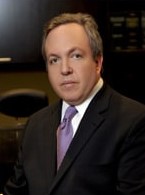
Eileen Epstein Carney
Eileen is involved in the firm’s securities practice and has over a decade of experience in the legal world. She received her law degree from American University in 2005.

GPB Suspends Redemptions; Audited Financial Statements Continually Delayed
InvestmentNews has been one of the most reliable news sources reporting the latest GPB developments that are impacting investors. As more news comes out about GPB, many investors are beginning to worry about the safety of their GPB investment, and rightfully so. Our team of GPB Capital Lawyers has been investigating GPB for months, and is dedicating to updating investors about the prospects of their investments.
Our investigation has led us to file a class action lawsuit as well as many individual lawsuits against GPB and the firms who sold GPB investments. If you invested in any GPB Capital funds, including GPB Automotive Portfolio and GPB Holdings II, you may be eligible to recover your losses. Speak with our team today to learn more about your options.
Lost Money in GPB Capital Funds? We Can Help.
Learn the truth about your investment. Free and confidential consultations.
InvestmentNews has continually reported important news and developments about GPB Capital. Here are the most recent developments at GPB as reported by InvestmentNews.
On May 27, 2020, the Massachusetts Securities Division charged GPB Capital with defrauding 180 local investors. According to the complaint, the local investors contributed more than $14 million to five GPB funds, relying on marketing materials which stated that distributions would be paid from operational profits. Instead, InvestmentNews reports, GPB used investor funds to pay investor distributions.
The complaint also alleges that GPB did not disclose certain payments between related businesses and other conflicts of interest, according to InvestmentNews.
As reported by The DI Wire, the securities division is seeking an administrative fine on GPB, a permanent bar from registration in Massachusetts, and a disgorgement of all profits. If successful, GPB may also have to provide rescission offers to all residents who were sold GPB securities in violation of the law.
This complaint marks the first instance of a government regulator officially accusing GPB of wrongdoing. However, our firm has already filed numerous lawsuits on behalf of GPB investors against the brokerage firms that sold GPB funds. Get a free consultation from a GPB lawyer and learn how you may be able to recover your losses.
According to InvestmentNews, GPB Capital issued a letter to investors in January of 2020, reporting the delay of its Schedule K-1 tax form for the GPB Automotive Portfolio. According to the letter, the company is unable to release these important tax documents before tax day. In fact, InvestmentNews reports that the forms may not be released until the end of July.
The Schedule K-1 may be an important tax document for investors who are unsure of the true value of their investment. According to InvestmentNews,
The Schedule K-1 tax form tells investors what they have made or lost during the reporting period, and it also informs them what the private placement is worth. Investors are required to file the form for their private placement investments. If a Schedule k-1 is not delivered, investors can file an extension on their taxes.
While GPB issued this letter on behalf of the GPB Automotive Portfolio, InvestmentNews states that it is unclear whether GPB will send tax documents to investors in other funds. According to the article, “GPB has a history of not providing investors with timely information.”
In late November 2019, InvestmentNews reported that GPB would once again delay the release of its audited financial statements. After missing its September 30, 2019 deadline, GPB committed to releasing the audited results by the end of 2019. But, according to InvestmentNews, this deadline will no longer be met.
In a letter to some investors announcing the delay of the financials, GPB cited the recent indictment of its Compliance Officer, who was criminally charged for accessing confidential information regarding an ongoing SEC investigation into GPB. According to the letter, GPB has now engaged a law firm to perform an internal investigation into the allegations surrounding the indictment.
The letter states that as a result of the recent indictment and new investigation, as well as other matters, GPB’s outside auditor has suspended work, and its internal audit committee has made plans to resign.
InvestmentNews reported on this increased delay:
Investors waiting to learn the value of their investments have been met with delays in receiving audited financial results going back to the spring of 2018. Meanwhile, investors have been prohibited from liquidating their investments or selling on a secondary market.
In March of 2020 GPB sent another letter to some investors, explaining that, as previously stated, the auditor has suspended work on the financial statement audits. However, the company reported, the auditor expects to resume work near the beginning of April. GPB had been promising this audit work for over a year, per media reports, and this is another in a long line of continued promises that the report is coming. The expected audit completion date has yet to be provided.
On October 23, 2019, InvestmentNews reported that the Department of Justice charged GPB executive Michael Cohn with obstruction of justice in relation to the Securities and Exchange Commission’s (SEC) investigation of GPB. According to InvestmentNews, Cohn previously worked for the SEC as a securities compliance examiner and industry specialist. Upon his departure from the Commission, Cohn allegedly stole information from the SEC’s servers regarding the GPB investigation. Cohn then began working for GPB in October of 2018.
The FBI released a press release about the Indictment. In this press release, FBI assistant director-in-charge stated:
When Cohn left the SEC to join GPB, he left with more than his own career ambitions. The proprietary information he allegedly retrieved — from databases he wasn’t authorized to access — included compromising information about a GPB investigation and sensitive details related to the same.
According to InvesmentNews, Cohn is being faced with charges of unauthorized computer access as well as the disclosure of confidential information. The news source states that Cohn allegedly advised GPB personnel about his inside information while discussing a potential job with the company and disclosed confidential information about the investigation to members of GPB’s senior management on several occasion.
InvestmentNews notes that this information includes privileged attorney-client work and contacts with law enforcement agencies.
If convicted, Cohn could face up to 20 years of imprisonment on the obstruction of justice count, five years on the unauthorized computer access count, and one year on the unauthorized disclosure count.
InvestmentNews‘ GPB reporting began in 2018 when GPB missed an April 30th deadline to file financial statements with the Securities and Exchange Commission for two of its funds: GPB Holdings II and GPB Automotive Portfolio. According to InvestmentNews, these two funds alone have nearly $1.3 billion in investor capital combined. In a letter sent from GPB to broker-dealers who sell GPB private placements, and obtained by InvestmentNews, GPB Capital CEO David Gentile stated that the two funds must report annual audited financial statements that conform to important auditing standards and SEC regulations. Gentile explained
As a result of this and other factors the issuance of our audited financial statements and the filing of our registration statement will be further delayed.
According to the letter, the company also suspended redemption of its funds until the audited financial statements could be released and the public filings were completed. These funds include:
If you invested in any of these GPB funds, you may be eligible for monetary recovery. Contact our GPB securities team to learn more.
InvestmentNews later reported in August 2018 that GPB announced, as part of an accounting review, it would restate the 2015 and 2016 financial statements for certain funds. This came after GPB’s auditor, Crowe LLP, had suspended its work to give GPB management time to complete the company’s 2017 financial statements, according to InvestmentNews.
In November of 2018, GPB sent a letter to broker-dealers who sold its funds. InvestmentNews reports that the letter explained the resignation of GPB’s auditor, Crowe LLP. According to the letter, which was signed by CEO David Gentile,
Crowe notified GPB Capital that it elected to resign as the auditor for the partnership… due to perceived risks that Crowe determined fell outside of their internal risk tolerance parameters.
InvestmentNews reported that the auditor resignation may be seen as a red flag for many investors; the article quoted a conference call by the CEO of Advisor Group:
Any time anyone switches auditors, it raises the hair on the back of your neck.
InvestmentNews also noted at the time that GPB did not state when the audited financial statements for the funds would be completed. This does not come as a surprise, as GPB has continually withheld information from investors. We are working hard to uncover the truth.
In early 2019, InvestmentNews reported that the FBI raided GPB Capital’s New York office. This unannounced visit by the FBI was related to a search warrant issued by the U.S. Attorney’s office, according to the article.
InvestmentNews also reported that in December 2018, FINRA and the Securities and Exchange Commission (SEC) launched investigations into GPB. According to the source, the SEC focused on
… disclosures made by GPB to investors, the performance of various funds and the distribution of capital to investors.
Additionally, the Massachusetts secretary of the Commonwealth is investigating 63 brokers who sold GPB Capital’s private placements.
In November of 2019, InvestmentNews reported that another lawsuit was filed in federal court accusing GPB of being a Ponzi scheme. According to the GPB Ponzi scheme lawsuit, GPB used cash from new investors to pay the dividends of older investors. InvestmentNews stated,
GPB promised investors returns of 8% annually, but those returns were not generated by investments in auto dealers or other businesses but paid for by tapping the capital from the next round of investors, or in some cases the capital of the investor himself, the complaint alleges.
This lawsuit comes months after InvestmentNews reported that, on July 19, 2019, a former GPB business partner filed a complaint in Norfolk Superior Court against GPB. According to the article, David Rosenberg, chief executive of Prime Automotive Group, alleged that GPB was running a Ponzi-like scheme. InvestmentNews explained that the complaint accused GPB of using investors’ money to “prop up” the performance of the auto dealerships the company owned, as well as finance payments to some other investors.
Ponzi Schemes are often very unstable investments. These scams are able to promise high rates of return by using money from new investors to pay off earlier investors. In Ponzi schemes, the investors who get out the earliest often receive more compensation than the ones who try to get out last, or don’t get out at all.
InvestmentNews reported that, according to a document distributed by GPB in June of 2019, the company admitted that at the end of 2018, its funds had declined in value from 25% to 73%, with its two largest funds, GPB Automotive Portfolio and GPB Holdings II, dropping by nearly 40% and 25.4% respectively. This means, for example, that investors who initially put $100,000 into a GPB fund are left with $27,000 to $75,000 of their principal investment, depending on which fund they invested in. And they can’t pull that money out, because GPB suspended redemptions.
Unfortunately, investors’ losses may be even larger than what GPB is reporting. GPB’s numbers are unaudited (and two audit firms have quit or been fired by GPB while auditing its financials), so no third party has verified their accuracy. In addition, these values provided by GPB are for 2018; the company has not disclosed what has happened to their funds’ value in the last six months.
GPB has still not provided any information about what caused the funds to decline in value.
If you invested in GPB Automotive, GPB Holdings II, or any other GPB funds losing value, you are encouraged to speak with a securities attorney immediately. We may be able to recover your losses.
According to an InvestmentNews article published in June of 2019, GPB paid broker dealers 9.3% commissions to sell these high-risk private placements to investors, and in total, broker dealers brought in $167 million in fees and commissions for the $1.8 billion it raised from investors. According to the article:
[A]s clients were paying steep commissions, the value of what they actually own in their investments dropped dramatically. GPB last week estimated the value of its seven funds to be $1.1 billion, or 61% of the initially raised capital.
It has been reported that a former officer from one of these broker-dealers came forward as a whistleblower to allege that GPB Holdings II should have never been approved for sale to retail customers because, “GPB Capital Holdings, LLC, were utilizing investor funds to monetize personal business interest.”
And a former business partner of GPB has accused the company in court filings of running a Ponzi scheme, according to InvestmentNews.
We have filed a variety of different cases against financial advisors and stock brokers on behalf of GPB investors. If your stock broker or financial advisor recommended you invest in GPB Capital, you may have a claim. We can help you hold your advisor, and their firm, accountable for your losses.
On September 10, 2019, many GPB investors received letters informing them that “new challenges” have impacted GPB’s ability to provide audited financial statements to investors by September 30, 2019, as previously promised.
This delay comes months after InvestmentNews reported that GPB Capital announced sharp declines in the values of its investment funds. According to the article, GPB revealed that at the end of 2018, its funds had declined in value by 25% to 73%, with its two largest funds declining by nearly 40% and 25.4% respectively. These values were not audited by a third party, and the company has still not revealed the true and current value of the funds for 2019.
In September of 2019, InvestmentNews published an article about the newest delay, noting that this is not the first time GPB has missed a deadline and kept vital information from investors. The article states:
In the spring of 2018, the firm failed to produce audited financial statements for two of its largest funds, GPB Holdings II and GPB Automotive Portfolio, and then last summer it said it was overhauling and restating the 2015 and 2016 financial statements of certain funds as part of an accounting review. By last fall, its auditor and accountant, Crowe, resigned.
InvestmentNews points out that GPB is now citing “fresh problems” for their newest delay. According to the article, the missing of this deadline seems to be just one of many difficulties GPB has faced in the past year. Other problems cited by the article include a sharp decline in the company’s two biggest funds and a lawsuit filed against GPB by a former executive.
GPB continues to withhold vital information from shareholders. We will continue to investigate and hold GPB accountable for its actions.
Invest in GPB Funds?
Our securities lawyers have recovered over a billion dollars on behalf of our clients against behemoths, such as Chase Bank, Mastercard, and Anthem Blue Cross Blue Shield. Read more about our results.

“My in-laws lost their retirement funds to a dishonest broker. Silver Law Group and Scott Silver aggressively pursued their losses until he got their money back.”
-Silver Law Group client, Ben M.

“You and your entire staff have been wonderfully organized, professional and a delight to hear from. Usually that is not the case when dealing with legal matters – but you guys (gals) rock.”
-Gibbs Mura client, Amy
Federal judge in our AT&T class action:
“I’ve always found them to be extraordinary counsel in terms of their preparation and their professionalism.”
Federal judge in our Chase lawsuit (resulting in $100 million settlement):
They “fought tooth and nail, down to the wire” to achieve “the best settlement that they could under the circumstances.”
Read more about what judges say about us.
Our team typically handles securities claims on a contingency or “success-fee” basis. This means that you will not have to pay an hourly rate or pay out-of-pocket in advance for legal representation. If you win, the lawyer’s fee will come out of the money awarded to you. But if no money is recovered from your claim, you will owe nothing to our team for attorney’s fees or the work done on the case.
We are happy to discuss any questions related to our fees as well as different arrangements we can structure.
 Scott Silver
Scott SilverScott focuses his law practice on securities arbitration and litigation and plaintiff-side class action litigation, representing individual investors and institutions in claims against brokerage firms, investment advisors, commodities firms, hedge funds and others.

Eileen is involved in the firm’s securities practice and has over a decade of experience in the legal world. She received her law degree from American University in 2005.

David’s advocacy has generated major recoveries for consumers impacted by financial fraud. He was named to the Top 40 Under 40 by Daily Journal and a “Rising Star in Class Actions” by Law360.

Amanda is spearheading a securities lawsuit against NantHealth concerning fraudulent statements to investors about the success of its key product.
Gibbs Mura’s financial fraud and securities lawyers have more than two decades of experience prosecuting fraud. The firm has successfully litigated against some of the largest companies in the United States, and has recovered more than a billion dollars on clients’ behalf.
Gibbs Mura attorneys have fought some of the most complex cases brought under federal and state laws nationwide, and have been recognized with numerous awards and honors for their accomplishments, including Top 100 Super Lawyers in Northern California, Top Plaintiff Lawyers in California, The Best Lawyers in America, and rated AV Preeminent (among the highest class of attorneys for professional ethics and legal skills).
Silver Law Group is a team of securities lawyers, forensic accountants, and support staff who are dedicated to helping investors recover losses through securities arbitration and litigation.
The firm is led by Scott Silver, a former Wall Street defense attorney who has been representing customers in securities and investment fraud cases since 2002. Scott is admitted to practice in New York and Florida and the firm’s FINRA arbitration attorneys represents investors nationwide.